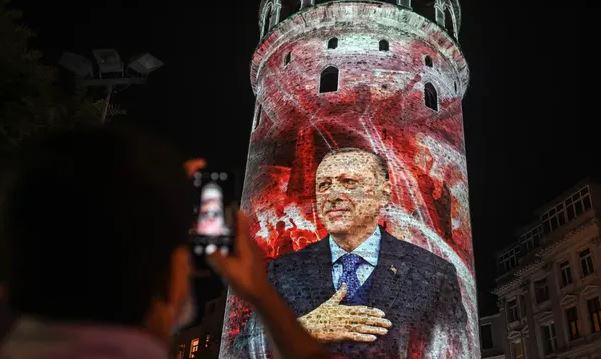by Guardian
Julian Borger
European legal experts compiled a dossier of witness testimonies giving details of torture, state sponsored kidnapping, and wrongful imprisonment
The international criminal court (ICC) in The Hague is being asked to investigate the Turkish government for alleged crimes against humanity in its pursuit and persecution of opponents around the world.
Read also
A panel of European legal experts has compiled a dossier of witness testimonies giving details of torture, state sponsored kidnapping, and wrongful imprisonment of about 200,000 people, said to have been carried out by the government of Recep Tayyip Erdoğan. The dossier is due to be delivered on Wednesday to the chief ICC prosecutor, Karim Khan.
“Turkish officials have committed crimes against humanity against hundreds of thousands of opponents of the Erdogan regime,” the submission says. “These crimes amount to a ‘widespread and systematic attack against a civilian population’, meeting the threshold for the ICC to launch proceedings against high ranking officials of the Erdogan regime.”
Turkey is not a signatory to the Rome Statute that established the ICC, but the Turkey Tribunal, an investigative body set up in 2020 by lawyers and human rights groups to collate evidence and witness testimonies, said that at least some of the alleged crimes were carried out on the territory of 45 ICC member states, as Turkey has pursued its perceived enemies well beyond its borders. Therefore, the tribunal argues, the ICC has jurisdiction.
The ICC presentation says there were 17 cases of enforced disappearance in which victims were abducted from Kenya, Cambodia, Gabon, Albania, Bulgaria, Moldova, Mongolia and Switzerland and taken back to Turkey. The targets were linked to the opposition movement, led by US-based Islamic preacher Fethullah Gülen, designated as a terrorist organisation after Gülen was accused of being behind a failed coup attempt in 2016, which was followed by hundreds of thousands of arrests inside Turkey.
On 14 October 2019, Osman Karaca was seized by unidentified men, believed to be Cambodian counter-terror police, while visiting a bank in Phnom Penh. Karaca, aged 49 at the time, is a Turkish-born teacher, who had been a school headteacher in Cambodia before moving to Mexico in 2011 where he was a college principal until late 2018. He had feared that he was being watched by Turkish intelligence because he had been working in a school linked to the Gülen movement. In 2019, Karaca took up an invitation to return to Cambodia to work at a school whose owners were related to members of the Cambodian government, thinking he would be safe there.
After being held incommunicado for four days, Karaca was handed over to Turkish authorities who flew him back to Turkey on a small government jet. He was convicted of leading an armed terrorist group in the 2016 coup attempt, despite the fact he had left Turkey for Cambodia in 2002.
The tribunal says Karaca is just one of many Turks living abroad who have been designated as “terrorists” because of links to Gulenist schools or other institutions. The tribunal’s submission to the court also includes statements on the torture of 800 people, which it says “describe in detail how torture has been inflicted on a large and consistent scale”.
The Turkish foreign minister has so far not responded to a request for comment.
“This should be investigated,” said Johan Vande Lanotte, a former Belgian deputy prime minister and human rights law professor, who helped set up the tribunal and is leading the effort to persuade the ICC to open an investigation. “The universal basic principles of international law are being violated.”
The Turkey Tribunal points out there is a precedent for investigating the crimes of a non-signatory state. In 2019, the ICC decided it could investigate Myanmar’s ethnic cleansing of Rohingya Muslims, even though Myanmar did not recognise the court’s authority, because many of the victims had been deported to Bangladesh, which is an ICC signatory. Therefore, the tribunal argued, “elements of the crime had been committed in a member state”.
In the case of Turkey, it argues, “the crimes were committed on the territory of 45 party states, for which the ICC has territorial jurisdiction. These specific crimes are related to some 1300 victims.”
Vande Lanotte said: “We had the United Nations Working Group on Forced Disappearances look into this, the UN Human Rights Committee, the European court of human rights, and even judges in Turkey itself, and nothing has been done, so this is the last possibility for justice.”























































